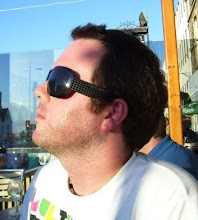
SPOILER ALERT: I do give away some of the storyline in the film.
I have never written a movie review and I don’t really watch that many movies, so what I am about to write should not be taken in relatively – what I think is an original idea or representation may have been done before, but let’s continue and you can see for yourself. And then tell me, please.
The movie which I want to take a quick run through is The Kids Are Alright which stars Annette Bening (who plays Nic), Julianne Moore (Jules) and Mark Ruffalo (Paul) – two celebrated yet not-Oscar-winning women, and a chap who hasn’t quite ever left the screen, come to think of it – I have been watching him on TV for just about ever.
The premise of the film is that Nic and Jules are a long-term gay couple who, through in-vitro, have two children. Each of the women used sperm from the same donor and popped out one of the sprogs. The kiddies grow up into angsty teens – a girl of 18, Joni (played by Mia Wasikowska - Alice from Alice in Wonderland) and a boy of 15, Laser (Josh Hutcherson) – who decide they want to meet their biological father Paul (who is played by Ruffalo). His entry into their lives upsets the apple-cart somewhat and a few uncomfortable questions are asked.
The first real point of note, though, is that this is the first time I have ever been able to relate to a gay character in a movie. Annette Bening played a real person who was a lesbian, and there was no clichéd aspect to her character that I could pick up. Compare that to someone like Chris Colfer in Glee – a role which still manages to deal with fairly deep homosexual issues in the show, but does the whole fashionista, squeaky-voiced character we have come to expect on screen - Jack from Will and Grace, the pair from Sex and the City and so on. A lot of gays sit outside that: Bening’s character is relatable for people – homosexuals and heterosexuals alike.
Another biggie (and this is a spoiler alert) is that the affair between Julianne Moore’s character and Ruffalo's is not the central theme of the film. Yes, it’s a huge deal, but it is the first time I have ever seen where the cause and follow-up are actually more important and covered than the act. The fallout was not the fact that there was an affair, it dealt with the circumstances that led to it. And this is the real basis of the movie.
Although Nic and Jules are a gay couple, the strife they face applies to all families. Bening plays a controller and likes to be the responsible one. Moore's character is the opposite – a tree-hugging hippie who has a few failed businesses to her name, but feels emotionally like the number two in the relationship – mostly due to horrid communication between the two of them. In fact, the feelings of resentment and lack of notable affection are what drives Moore’s character to an affair with a man. Once again though, it is treated in the film as a temporary issue, albeit a biggie – although Bening questions whether Moore is straight when she find out (which we were probably all asking), it is not a focal point of the film. Viewers can see the logical map of why the distance between Nic and Jules is growing, and reaches its apex.
As the movie progresses, Paul becomes more involved in his biological childrens’ lives culminating in him dishing out tips to the two women who have brought them up from birth, and it is this instance that actually begins the process of healing within the family. The film really comes to grips with family bonds, generational family issues and real life things - for example, that you can't hijack someone else's family to satisfy your own deeply-hidden avoided want for one.
The reality is cinematographically beautiful: In one scene just as Nic finds out about Jules's affair, she stops hearing everything and viewers has no idea how she was going to deal with the realisation. It was a cinematographic “bazinga” – everyone knows that feeling when your brain can focus on nothing else but a newly discovered stressful issue. The film carries on in this vein – it was entirely relatable on an emotional level – not something you would expect from its basic storyline, but a masterful, realistic script and five quality performers in the key roles make it so.
The lessons apply to all of us, highlighting dangers that can arise in long-term relationships, showing the strength and difficulty in penetrating a family unit, and how problems can be solved sometimes through sheer bloody closeness.
Never have two lesbians and a sperm-donor been more relatable. And the relatability is certainly something that kept me glued through the entire film.
If you don’t watch it, you are missing one of the best movies I have ever seen.
Image nabbed from IMDB and then edited too.





No comments:
Post a Comment